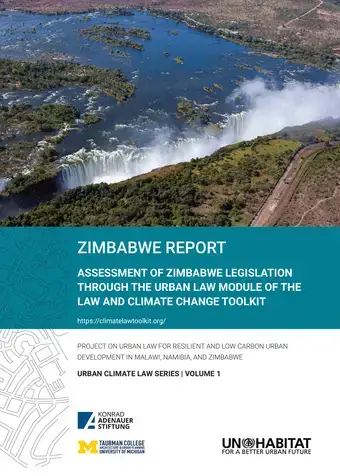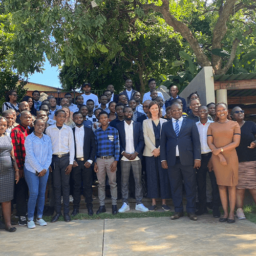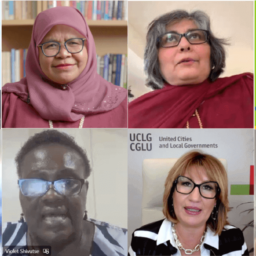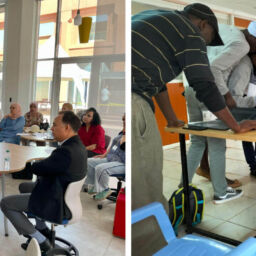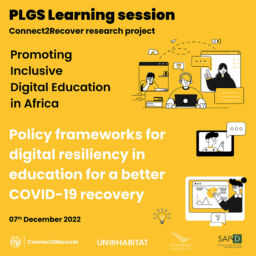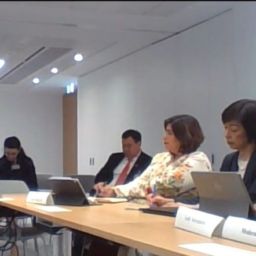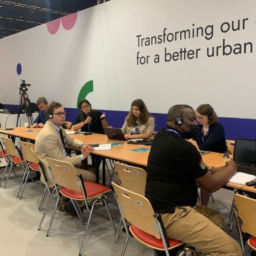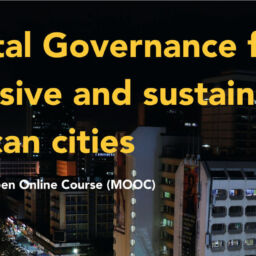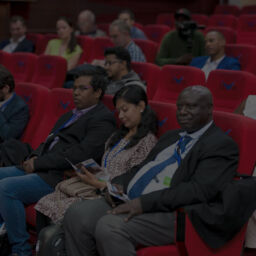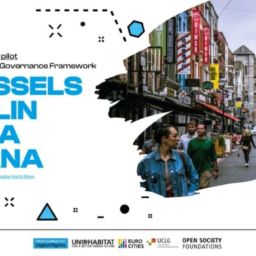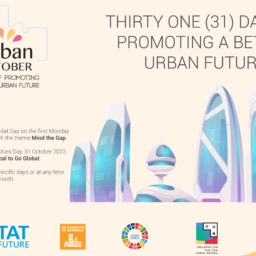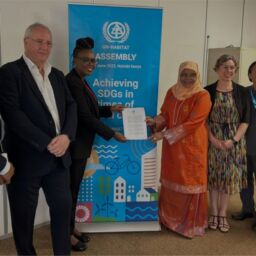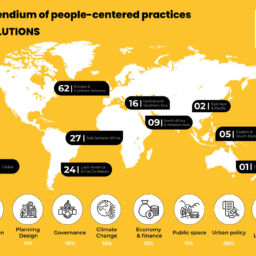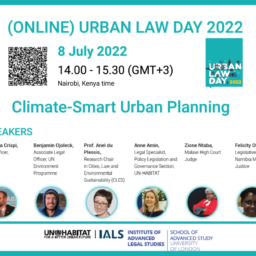UN-Habitat and KAS review progress of climate-related urban legal reforms and enhance knowledge of climate smart planning legislation in Zimbabwe
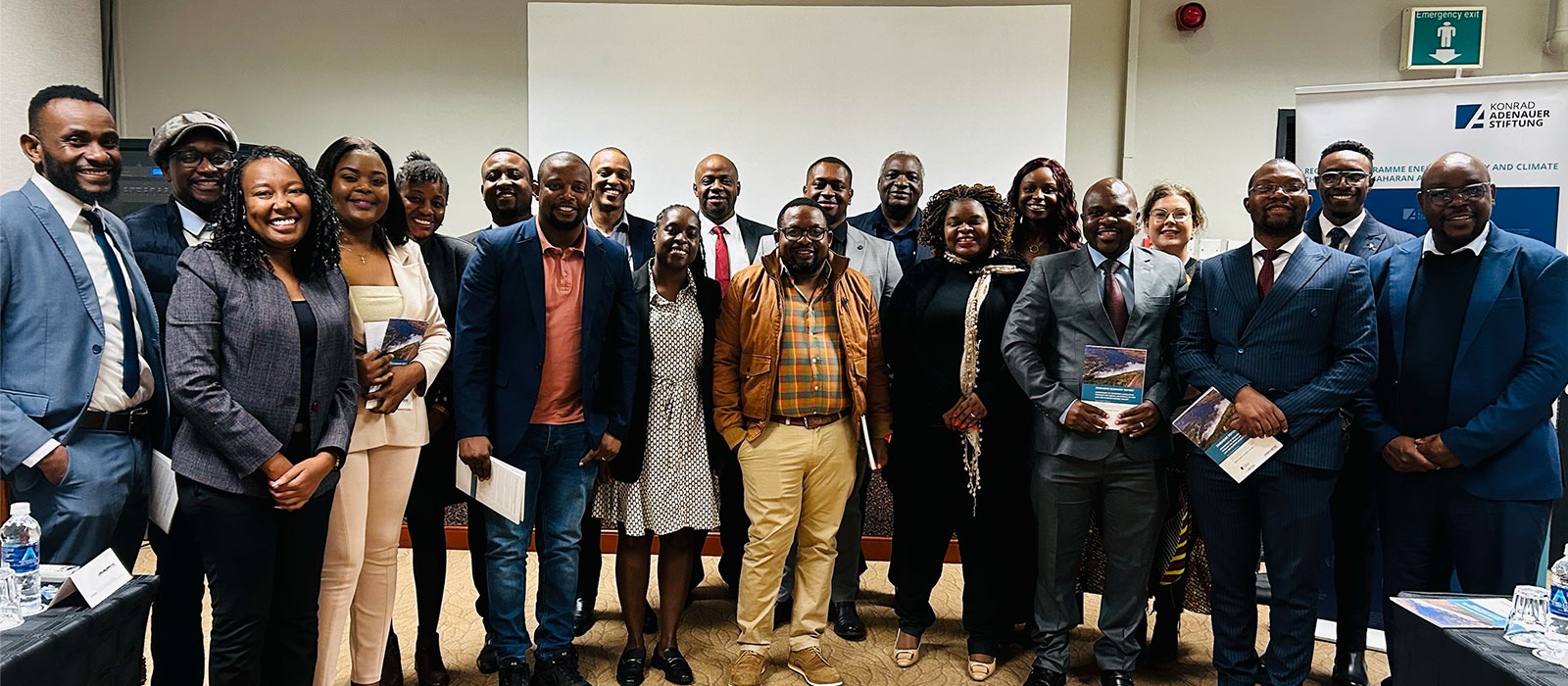
Harare, Zimbabwe 10th – 11th June 2024
After participating in a stocktaking event, 15 high-level stakeholders from national and local governments, civil society, and academia have enhanced their capabilities to make localized decisions addressing climate change. Moreover, 22 students and climate youth advocates from Zimbabwe (10) and Malawi (12) benefitted from peer-to-peer learning and training through the e-learning course on advancing climate action through urban law which has built their capacity to understand the importance of urban law in promoting low carbon, green, resilient and sustainable urban development. These two-day sessions were organized by UN-Habitat Policy, Legislation and Governance Section, and the Konrad-Adenauer-Stiftung Regional Programme Energy Security and Climate Change in Sub-Saharan Africa (KAS).
Monday, 10th June 2024: The high-level session included, among others, the Ministry of Lands, Agriculture, Fisheries and Rural Development; Ministry of National Housing & Social Amenities; UN Resident Coordinator Zimbabwe; UNICEF; the Africa Development Bank Group; Oxfam; and Save the Children. The event was a “stocktaking” exercise of what needs to be done or has been done to implement the suggested outcomes and findings from the climate urban legal assessment undertaken through the project “Urban Law for Resilient and Low Carbon Urban Development in Malawi, Namibia, and Zimbabwe.”
The legal assessments were done between 2021-2022, using the UN-Habitat Urban Law Module of the Law and Climate Change Toolkit, a legal assessment tool developed by UN-Habitat in collaboration with UNEP, UNFCCC, and the Commonwealth Secretariat to support governments at national, regional, and local levels accelerate climate mitigation and adaptation of urban areas through legal reforms.
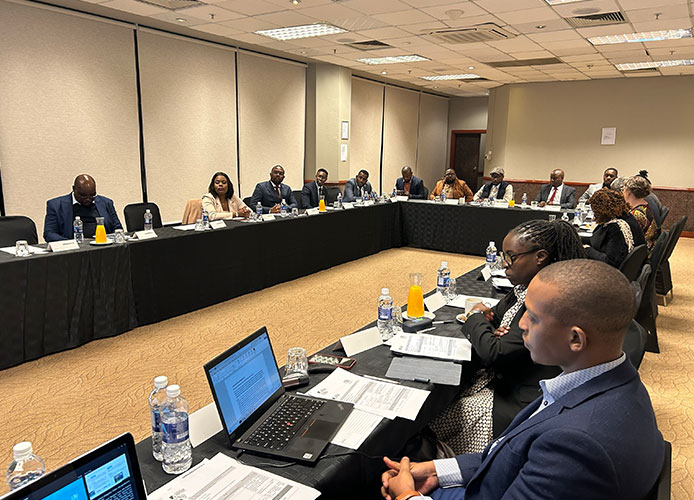
It emerged that Zimbabwe does not yet have a comprehensive legislative framework on climate change with climate change issues scattered in various legal instruments and sectors that include environmental legislation, energy, water, local authorities, agriculture, and the Constitution. In addition, local authorities are required by law to prepare Environmental Action Plans that include emission control and climate change issues, but implementation gaps exist.
However, major policy and legal reforms are underway such as:
Tuesday, 11th June 2024: By participating in group-based activities derived from the e-learning course on advancing climate action through urban law, 22 participants (10 students & youth climate networks from Zimbabwe as well as 12 students from Malawi) were able to understand the potential of urban law in pursuing urban climate action and environmental protection.
A professor from the Zimbabwe University described the event’s timing as opportune since every city in Zimbabwe is in the process of revising their Master Plan and the planners, through the course and findings from the project, would benefit from an understanding of how to mainstream climate adaptation and mitigation strategies in spatial planning instruments. He also commended UN-Habitat and KAS for focusing the training programme on young people who are the future in building climate smart cities.
The participants were divided into four groups to respond to the following questions based on the e-learning course:
The group presentations allowed peer-to-peer learning and highlighted what both Zimbabwe and Malawi should be doing to promote sustainable and resilient climate action. The common ground for both countries is that:
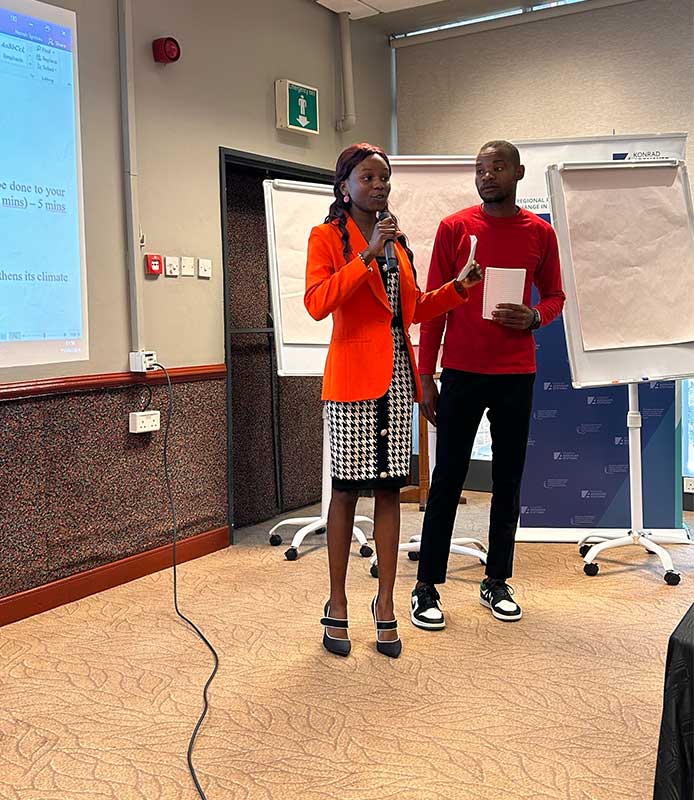
Finally, an anonymous Mentimeter survey revealed that 100% of respondents reported improved skills and knowledge as a result of taking the course. Most participants had similar takeaways from the event, such as: “it’s an amazing course – legislation and policy are key to creating climate smart urban cities”; “as young activists we need to be the ambassador in urban planning and law and that we need to change the young generation since they are the future” and that “I have a duty in my city to make it clean and educate others.”


